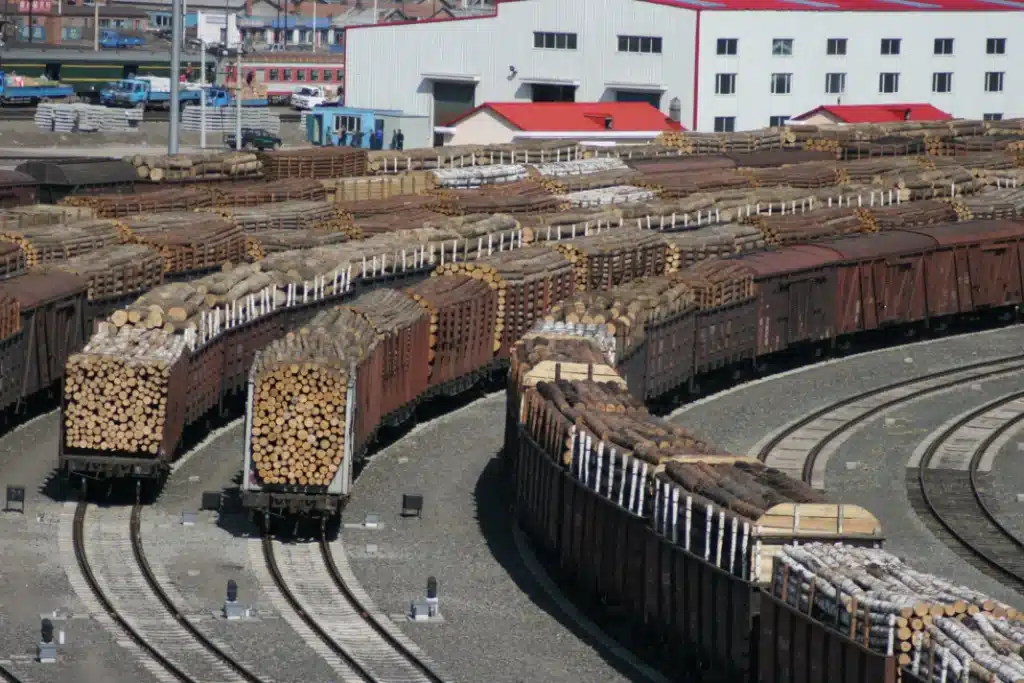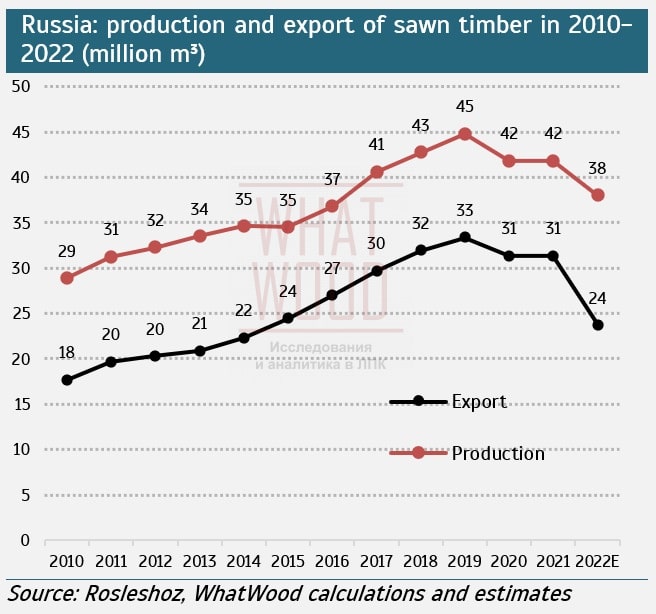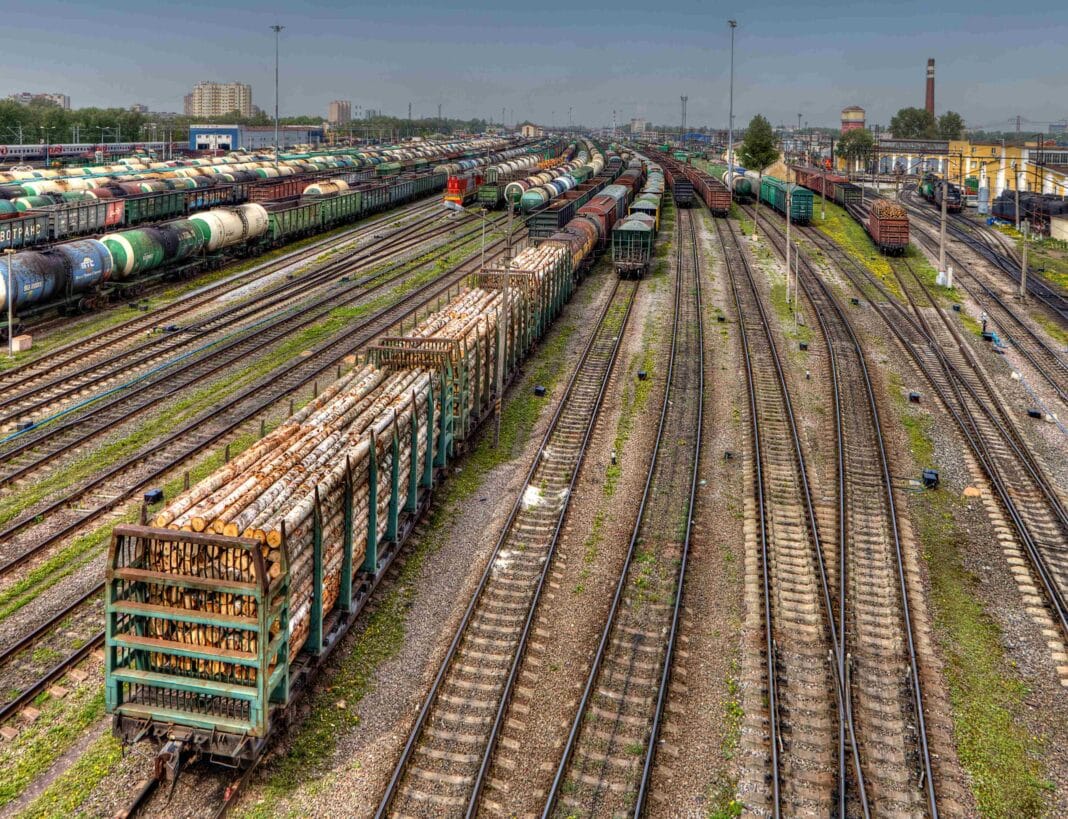Russia was the EU’s fifth largest trading partner in 2021, exporting more than $3 billion worth of timber to the bloc.
Whilst Wood Central has reported that volumes fell dramatically in 2022, a new investigation by the International Consortium of Investigative Journalists (ICIJ) has found that Russian timber is still entering the EU despite sanctions to curb timber revenue.
When Russia invaded Ukraine in February last year, sanctions swiftly followed, including a total ban on Russian timber imports into the EU and other Western countries, including Australia, from July last year.
While direct trade between Russia and the EU was stymied, new global pathways emerged to traffic illicit wood into the bloc.
As reported exclusively by the publishers of Wood Central last year, record shipments of ply used in laminated veneer lumber were entering the Australian marketplace via China.

The ICIJ’s Deforestation Inc. has now identified new routes through China, Turkey and other countries, adding to the traders using Kyrgyzstan and Kazakhstan previously reported by the Organised Crime and Corruption Reporting Project (OCCRP).
Reporters used customs data to trace cases of Russian wood bypassing bans and entering the EU, identifying upticks in EU timber imports from several countries after sanctions were imposed on Russia.
The investigation is part of ICIJ’s Deforestation Inc. project, which uncovered how major certification firms validate products linked to deforestation, logging in conflict zones and other abuses.
In April, Wood Central reported on the project, which scrutinised over 2000 instances involving 410 companies purportedly involved in environmental transgressions across a minimum of 50 countries.
The project showed how Myanmar teak continued to enter markets in the US and the EU sporting green labels, despite sanctions intended to remove a crucial funding source for the military regime that toppled a democratically elected government in 2021.

This is the material that the Environmental Investigation Agency (EIA) accused Oceanco of using in Jeff Bezos USD 500 million superyacht.
More than 100,000 tonnes of lumber have entered Germany, France and other EU countries as part of one of Russia’s biggest illegal timber scandals, it is alleged.
The business is, in turn, linked to two companies registered in the UK.
The report by environmental group Earthsight, suggests trees in Siberia are being plundered at an alarming rate.
The remote region has bears, wolves, lynxes and endangered tigers. Its peat and frozen soils store vast amounts of carbon.
In Russia, the state similarly owns – and therefore benefits financially from them – the country’s forests.
It temporarily grants rights to companies and individuals for commercial logging.
Several oligarchs with close ties to the Kremlin own Russia’s largest timber companies, together controlling a forested area as large as France, according to Earthsight, a British environmental nonprofit.
Messages obtained by the ICIJ partners revealed traders with connections to Russia offering to sell timber from Turkey, Kazakhstan and China.
Some masked timber origins with false certifications, while others explicitly outlined how they manoeuvred around sanctions.
“We have our own processing company and can easily process the imported [Russian] larch and export it to you,” reads one leaked message from a Chinese trader.
“This way you can easily obtain Russian larch produced in China.”

Another timber company based in Turkey describes how it can export wood from Russia to the EU by granting products Turkish certificates of origin, providing a “legal mechanism of operation for import and export with Russia, Turkey and Europe”.
In Europe, key stakeholders such as the European Confederation of Woodworking Industries say they know the issue.
“We have been alerted by several of our national member organisations about their companies receiving offers from countries that normally should not have the production capacity to make such offers,” a statement from CEI-Bois read.
The reality is that Europe’s sanction regime in response to Russia’s aggression on Ukraine is among the strictest, and therefore other countries are free to continue to trade with Russia.
A report has claimed that DIY shops across Europe are selling wood stolen from Russia’s far-east taiga region, where corruption contributes to the rapid destruction of virgin forests.
In Ukraine, the circumvention of trade sanctions has real consequences.
As Oleg Ustensko, adviser to Ukrainian president Volodymyr Zelensky, put it: “For families of killed and injured Ukrainians whose houses were destroyed by the Russian army, there is no difference whether this was paid for Russian wood, oil, gas or diamonds.”
Ustensko added: “All export revenues the Kremlin receives are eventually used for its war in Ukraine.”






